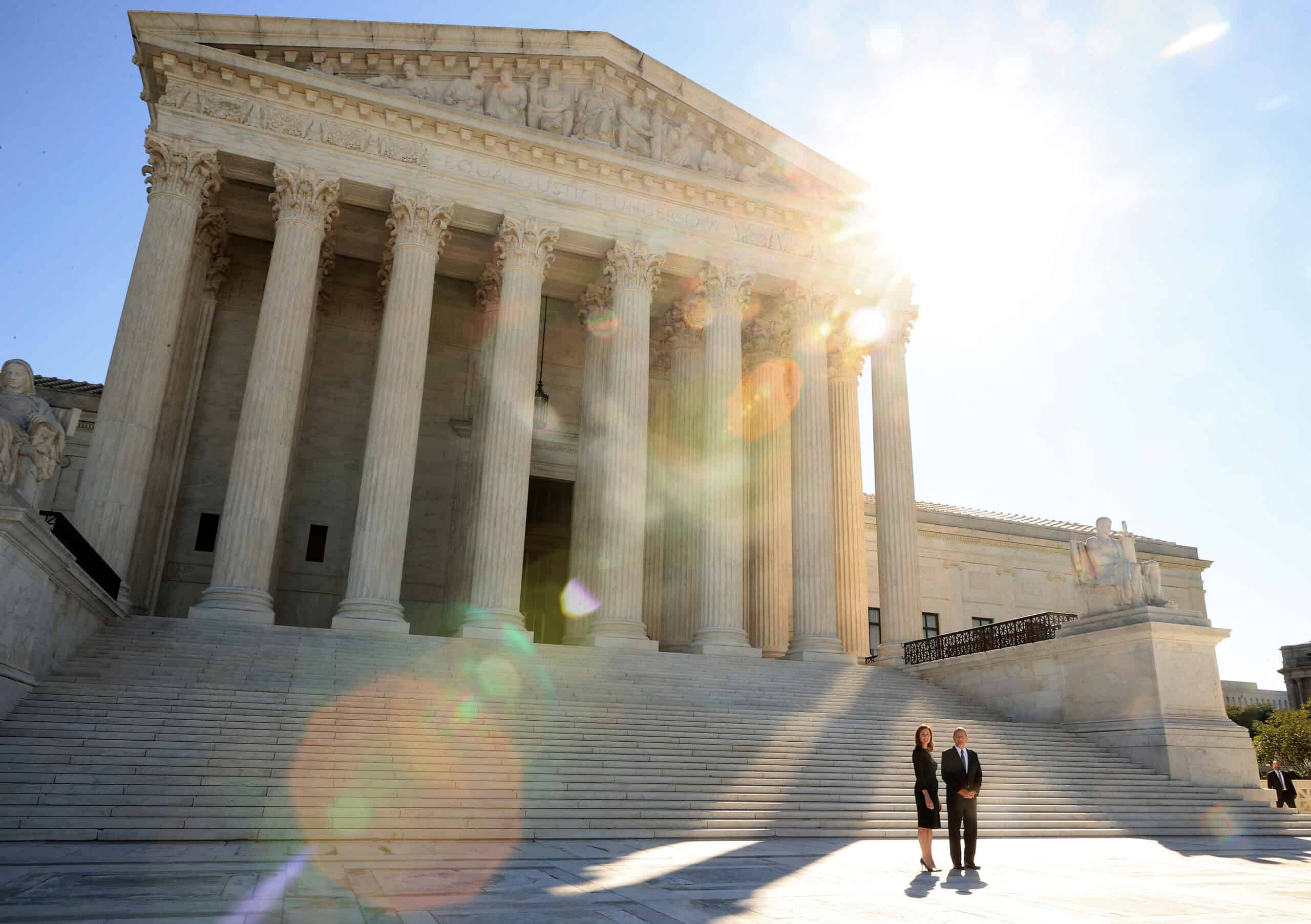Supreme Court Rejects Challenge to Government-Backed Social Media Censorship

The U.S. Supreme Court on Wednesday rejected a challenge to the federal government’s coercion of social media companies to censor speech it doesn’t like. The court ruled 6-3 in favor of the government.
Justice Barrett wrote the majority opinion for the court; she was joined by two fellow conservatives, Chief Justice Roberts and Justice Kavanaugh, as well as liberal Justices Sotomayor, Kagan and Jackson.
The lawsuit was brought by the states of Missouri and Louisiana, along with five social-media users including Drs. Jay Bhattacharya and Martin Kulldorff – co-authors of the Great Barrington Declaration in 2020 – Jill Hines, Aaron Kheriaty and Jim Hoft.
The individuals and states (i.e., “the Plaintiffs”) allege that the federal government engaged in a widespread censorship campaign during the COVID-19 pandemic and the 2022 Midterm Elections by coordinating with social media companies to stifle content.
U.S. District Judge Terry Doughty had issued a preliminary injunction in favor of the Plaintiffs on July 4, 2023, preventing the government from connecting with social media companies, like Facebook, X, and YouTube, to censor speech.
Judge Doughty had said that if allegations made by the Plaintiffs are true, the case “arguably involves the most massive attack against free speech in United States’ history,” adding,
During the COVID-19 pandemic, a period perhaps best characterized by widespread doubt and uncertainty, the United States Government seems to have assumed a role similar to an Orwellian “Ministry of Truth.”
The U.S. Court of Appeals for the Fifth Circuit subsequently upheld Judge Doughty’s preliminary injunction on September 8. The Fifth Circuit said that “numerous federal officials coerced social-media platforms into censoring certain social-media content, in violation of the First Amendment.”
The U.S. Department of Justice then appealed the ruling to the Supreme Court, which agreed to hear the case.
In its decision on June 26, 2024, the Court concluded that the plaintiffs do not have standing to bring the lawsuit. Therefore, the Court could not rule “on the merits” of the law as it is applied to the case.
“We begin – and end – with standing,” Justice Barrett wrote. “At this stage, neither the individual nor the state plaintiffs have established standing to seek an injunction against any defendant. We therefore lack jurisdiction to reach the merits of the dispute.”
The Court’s decision revolves around the whether the district court was correct to issue a preliminary injunction; the Court did not decide whether the federal government’s coordination with social media companies was unconstitutional.
After the Court released its decision, Missouri Attorney General Andrew Bailey said he will now take the case back to the district court to obtain additional discovery.
“The record is clear: the deep state pressured and coerced social media companies to take down truthful speech simply because it was conservative. Today’s ruling does not dispute that,” Attorney General Bailey said. “My rallying cry to disappointed Americans is this: Missouri is not done. We are going back to the district court to obtain more discovery.”
Justice Alito filed a dissenting opinion from the Court’s decision, which Justices Thomas and Gorsuch joined.
“This case involves what the District Court termed ‘a far-reaching and widespread censorship campaign’ conducted by high-ranking federal officials against Americans who expressed certain disfavored views about COVID-19 on social media,” Justice Alito wrote, adding,
If the lower courts’ assessment of the voluminous record is correct, this is one of the most important free speech cases to reach this Court in years.
“For months, high-ranking Government officials placed unrelenting pressure on Facebook to suppress Americans’ free speech,” Justice Alito wrote. “Because the Court unjustifiably refuses to address this serious threat to the First Amendment, I respectfully dissent.”
After the ruling was released, Florida Governor Ron DeSantis said, “The Court majority has rubber-stamped a way for the federal government to censor speech that it doesn’t like,” adding,
The Court is telling would-be censors: you can’t directly censor speech but if you pursue a sophisticated plan with enough subtlety you can get away with doing indirectly what the Constitution clearly for forbids you from doing directly.
Dr. Bhattacharya, Professor of Medicine at Stanford University, also expressed his disagreement with the Court’s decision.
“The Supreme Court just ruled in the Murthy v. Missouri case that the Biden Administration can coerce social media companies to censor and shadow-ban people and posts it doesn’t like,” Dr. Bhattacharya said. “Congress will now need to act to enforce the Constitution since the [Supreme Court] won’t.”
Additionally, Ilya Shapiro, senior fellow and director of constitutional studies at the Manhattan Institute, said the Supreme Court took “the easy way out by not deciding the key issue,” adding,
That’s a disappointing cop-out: the public deserves to know that their elected officials aren’t doing an end-run around the Constitution by having private actors do its bidding. But also note that this 6-3 vote involved three conservatives joining three liberals – so again attacks on the Court as being a bunch of partisan hacks fall flat.
The First Amendment clearly protects all American’s right to free speech. When the government places its thumb on the scale by censoring content it doesn’t like, that inalienable right is undeniably diminished.
The case is Murthy v. Missouri.
Related articles and resources:
Social Media Censorship Case Reaches Supreme Court
Court Rules Government Violated First Amendment with Social Media Censorship
Judge Rules Against Federal Government Censoring Speech on Social Media
States Sue Feds for Colluding with Big Tech to Censor Conservative Viewpoints
‘The Twitter Files’ – Elon Musk Releases Details of New York Post Censorship
‘The Twitter Files Part Two’ – Documentation of ‘Twitter’s Secret Blacklists’
Photo from Getty Images.
ABOUT THE AUTHOR
Zachary Mettler is a writer/analyst for the Daily Citizen at Focus on the Family. In his role, he writes about current political issues, U.S. history, political philosophy, and culture. Mettler earned his Bachelor’s degree from William Jessup University and is an alumnus of the Young Leaders Program at The Heritage Foundation. In addition to the Daily Citizen, his written pieces have appeared in the Daily Wire, the Washington Times, the Washington Examiner, Newsweek, Townhall, the Daily Signal, the Christian Post, Charisma News and other outlets.
Related Posts

Sidewalk Evangelist Wins Right to Share Good News
October 31, 2025



